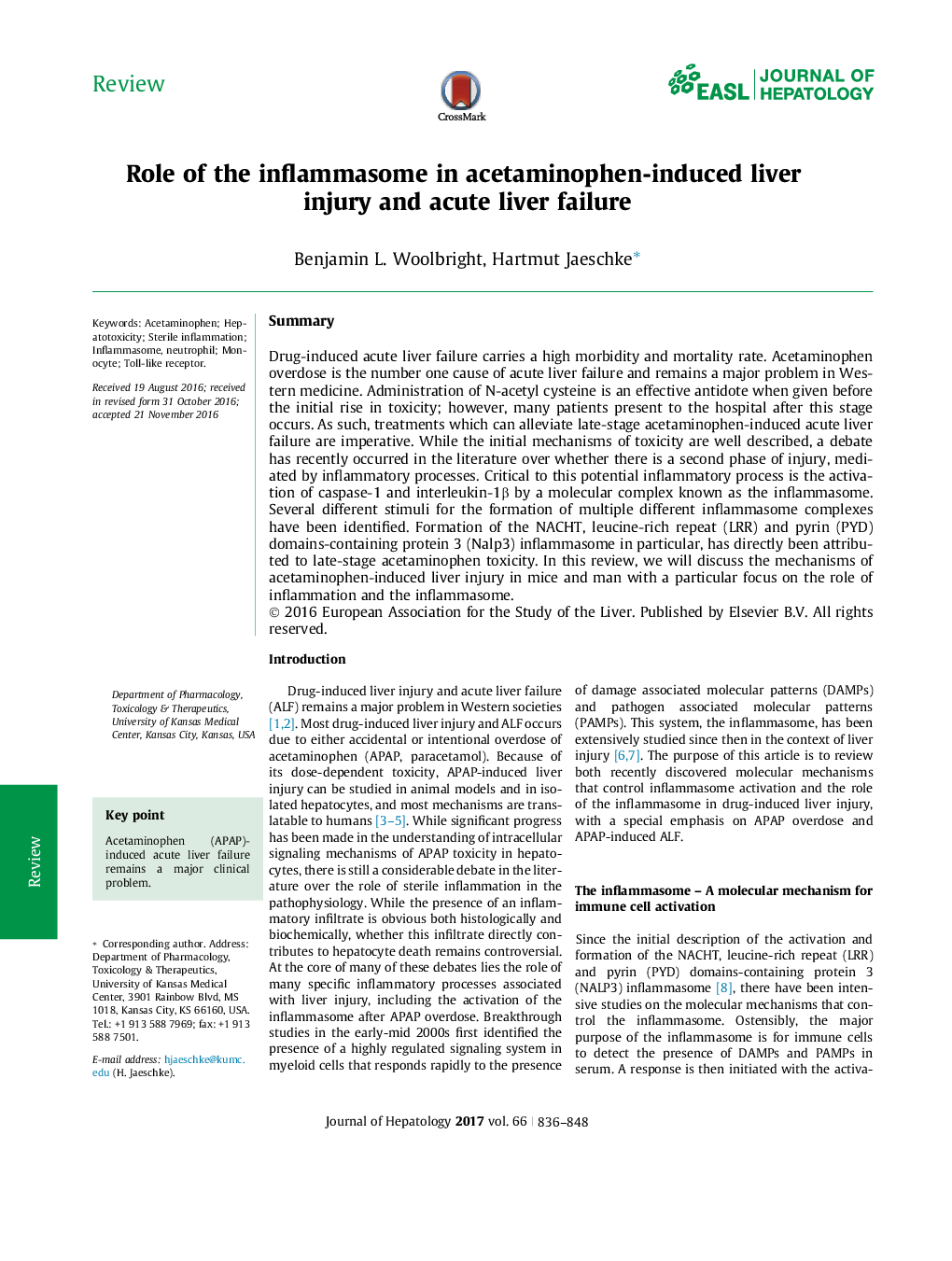| کد مقاله | کد نشریه | سال انتشار | مقاله انگلیسی | نسخه تمام متن |
|---|---|---|---|---|
| 5660850 | 1407499 | 2017 | 13 صفحه PDF | دانلود رایگان |
SummaryDrug-induced acute liver failure carries a high morbidity and mortality rate. Acetaminophen overdose is the number one cause of acute liver failure and remains a major problem in Western medicine. Administration of N-acetyl cysteine is an effective antidote when given before the initial rise in toxicity; however, many patients present to the hospital after this stage occurs. As such, treatments which can alleviate late-stage acetaminophen-induced acute liver failure are imperative. While the initial mechanisms of toxicity are well described, a debate has recently occurred in the literature over whether there is a second phase of injury, mediated by inflammatory processes. Critical to this potential inflammatory process is the activation of caspase-1 and interleukin-1β by a molecular complex known as the inflammasome. Several different stimuli for the formation of multiple different inflammasome complexes have been identified. Formation of the NACHT, leucine-rich repeat (LRR) and pyrin (PYD) domains-containing protein 3 (Nalp3) inflammasome in particular, has directly been attributed to late-stage acetaminophen toxicity. In this review, we will discuss the mechanisms of acetaminophen-induced liver injury in mice and man with a particular focus on the role of inflammation and the inflammasome.
Journal: Journal of Hepatology - Volume 66, Issue 4, April 2017, Pages 836-848
